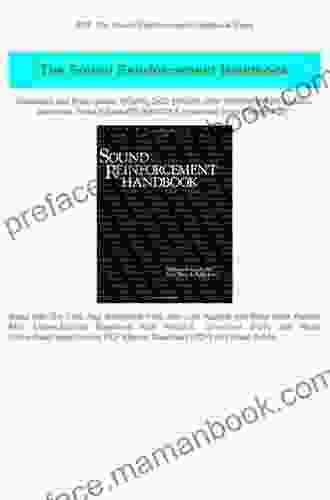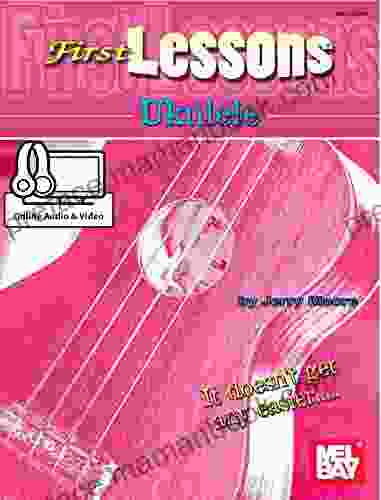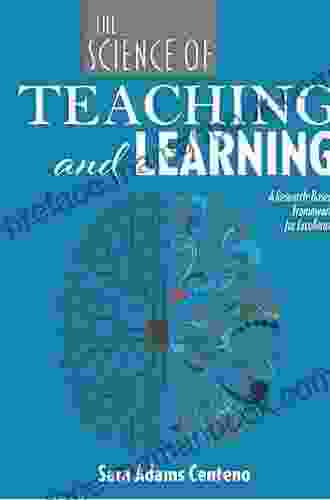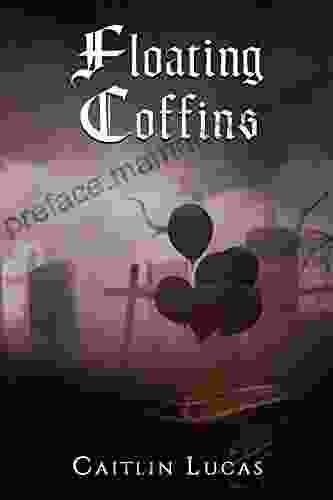The Study of the Language Embodying and Transmitting Folklore: An Endeavour To...

Folklore is a rich and diverse tradition that has been passed down for generations through oral storytelling and other forms of cultural expression. The language of folklore is a key element in understanding and preserving this tradition, as it provides insight into the beliefs, values, and experiences of the people who created and passed it on.
4 out of 5
| Language | : | English |
| File size | : | 786 KB |
| Text-to-Speech | : | Enabled |
| Screen Reader | : | Supported |
| Enhanced typesetting | : | Enabled |
| Word Wise | : | Enabled |
| Print length | : | 18 pages |
The study of the language of folklore is a relatively new field, but it is one that is rapidly growing in importance. As more and more people become interested in folklore, there is a growing need for scholars who can help to understand and interpret this complex and fascinating tradition.
There are many different approaches to the study of the language of folklore. Some scholars focus on the linguistic features of folklore, such as its grammar, vocabulary, and style. Others focus on the social and cultural context in which folklore is created and transmitted. Still others focus on the ways in which folklore can be used to express and communicate cultural values and beliefs.
No matter what approach is taken, the study of the language of folklore is a valuable endeavour that can help us to better understand and appreciate this rich and diverse tradition. By understanding the language of folklore, we can gain a deeper understanding of the people who created it and the culture that it reflects.
The Language of Folklore
The language of folklore is a unique and complex phenomenon. It is often characterized by its use of metaphor, symbolism, and other forms of figurative language. This is because folklore is often used to express ideas and concepts that are difficult to express in literal language.
The language of folklore is also often very specific to the culture in which it is created. This is because folklore is often used to reflect the values, beliefs, and experiences of a particular group of people.
As a result, the language of folklore can be very challenging to understand for people who are not familiar with the culture in which it was created. However, with a little effort, it is possible to learn to understand and appreciate the language of folklore.
The Importance of Studying the Language of Folklore
There are many reasons why it is important to study the language of folklore. First, the language of folklore can provide us with a deeper understanding of the culture in which it was created. By understanding the language of folklore, we can gain a better understanding of the values, beliefs, and experiences of the people who created it.
Second, the language of folklore can help us to better understand the human condition. Folklore is often used to express universal themes and experiences, such as love, loss, and hope. By studying the language of folklore, we can gain a better understanding of the human experience and the ways in which people have coped with the challenges of life.
Finally, the language of folklore can be a source of inspiration and creativity. Folklore is often full of rich and evocative language that can be used to inspire new ideas and creative works.
The study of the language of folklore is a valuable endeavour that can help us to better understand and appreciate this rich and diverse tradition. By understanding the language of folklore, we can gain a deeper understanding of the culture in which it was created, the human condition, and the ways in which people have coped with the challenges of life.
4 out of 5
| Language | : | English |
| File size | : | 786 KB |
| Text-to-Speech | : | Enabled |
| Screen Reader | : | Supported |
| Enhanced typesetting | : | Enabled |
| Word Wise | : | Enabled |
| Print length | : | 18 pages |
Do you want to contribute by writing guest posts on this blog?
Please contact us and send us a resume of previous articles that you have written.
 Top Book
Top Book Novel
Novel Fiction
Fiction Nonfiction
Nonfiction Literature
Literature Paperback
Paperback Hardcover
Hardcover E-book
E-book Audiobook
Audiobook Bestseller
Bestseller Classic
Classic Mystery
Mystery Thriller
Thriller Romance
Romance Fantasy
Fantasy Science Fiction
Science Fiction Biography
Biography Memoir
Memoir Autobiography
Autobiography Poetry
Poetry Drama
Drama Historical Fiction
Historical Fiction Self-help
Self-help Young Adult
Young Adult Childrens Books
Childrens Books Graphic Novel
Graphic Novel Anthology
Anthology Series
Series Encyclopedia
Encyclopedia Reference
Reference Guidebook
Guidebook Textbook
Textbook Workbook
Workbook Journal
Journal Diary
Diary Manuscript
Manuscript Folio
Folio Pulp Fiction
Pulp Fiction Short Stories
Short Stories Fairy Tales
Fairy Tales Fables
Fables Mythology
Mythology Philosophy
Philosophy Religion
Religion Spirituality
Spirituality Essays
Essays Critique
Critique Commentary
Commentary Glossary
Glossary Bibliography
Bibliography Index
Index Table of Contents
Table of Contents Preface
Preface Introduction
Introduction Foreword
Foreword Afterword
Afterword Appendices
Appendices Annotations
Annotations Footnotes
Footnotes Epilogue
Epilogue Prologue
Prologue Kenneth James Allen
Kenneth James Allen Neil Dahlstrom
Neil Dahlstrom Kikai Anime
Kikai Anime Alaina Marks
Alaina Marks Cheryle R Hart
Cheryle R Hart Alex Lake
Alex Lake M R Forbes
M R Forbes George A Akerlof
George A Akerlof Andy Greenberg
Andy Greenberg Beau Taplin
Beau Taplin Gaius Valerius Catullus
Gaius Valerius Catullus Founding Fathers
Founding Fathers Dave Bartell
Dave Bartell T D Wilson
T D Wilson Bridget Baker
Bridget Baker Lesley Sanderson
Lesley Sanderson Kj Baker
Kj Baker Mark Lawrence
Mark Lawrence Tae Keller
Tae Keller Carol Oates
Carol Oates
Light bulbAdvertise smarter! Our strategic ad space ensures maximum exposure. Reserve your spot today!
 Angelo WardFollow ·4k
Angelo WardFollow ·4k Casey BellFollow ·14.5k
Casey BellFollow ·14.5k Alan TurnerFollow ·7.5k
Alan TurnerFollow ·7.5k Gene PowellFollow ·9.8k
Gene PowellFollow ·9.8k Edgar Allan PoeFollow ·18.1k
Edgar Allan PoeFollow ·18.1k Darren NelsonFollow ·17.1k
Darren NelsonFollow ·17.1k Walt WhitmanFollow ·15.6k
Walt WhitmanFollow ·15.6k Dale MitchellFollow ·4.3k
Dale MitchellFollow ·4.3k

 Vincent Mitchell
Vincent MitchellUnveiling the Enchanting Tale of Plant Reproduction: A...
Plants, the silent yet vibrant...

 Sam Carter
Sam CarterDelve into the Enigmatic World of "Relative Murder: A...
In the realm of mystery and suspense, the...

 Richard Simmons
Richard SimmonsThe Sound Reinforcement Handbook: A Comprehensive Guide...
In the realm of live sound engineering, The...

 Leo Tolstoy
Leo TolstoyEnter the New Era of Cyberwar: Unmasking the Kremlin's...
`` Prologue: The Digital...

 Brenton Cox
Brenton CoxFirst Lessons Ukulele Bridget Baker: A Comprehensive...
Embarking on a musical journey with the...
4 out of 5
| Language | : | English |
| File size | : | 786 KB |
| Text-to-Speech | : | Enabled |
| Screen Reader | : | Supported |
| Enhanced typesetting | : | Enabled |
| Word Wise | : | Enabled |
| Print length | : | 18 pages |














